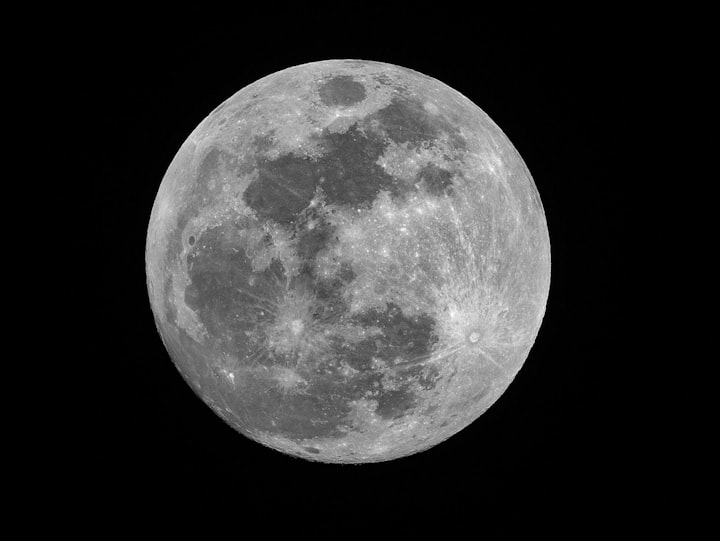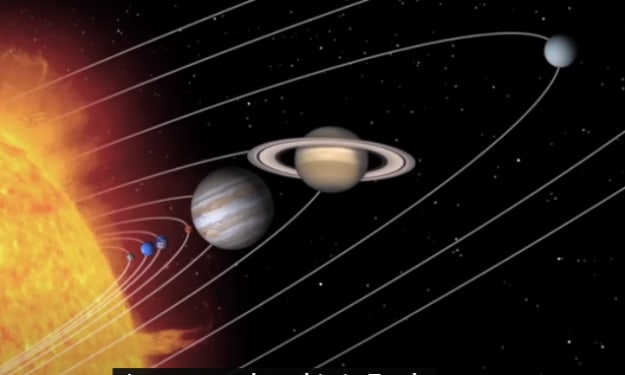Beneath the Moon's Gaze: Unveiling the Myth of Lunar Influence on Human Behavior
"Beyond Science: Debunking Centuries of Lunar Legends and Superstitions"

Samahani kwa kusahau kuweka kichwa cha habari hapo awali. Hapa ni nakala yenye maneno 715:
---
**Beneath the Moon's Gaze: Unveiling the Myth of Lunar Influence on Human Behavior**
**Introduction**
Hey guys, welcome to Beyond Science! Throughout history, humanity has held a deep-seated belief in the moon's ability to sway human behavior. From ancient times to the present day, the moon has been associated with mysticism and folklore. Let's delve into this captivating topic and explore the enduring myths surrounding the moon's influence on us.
**The Origins of Lunar Legends**
The belief in the moon's power dates back centuries. The very word "lunatic" originates from the Latin term "luna," meaning moon. Greek philosophers such as Aristotle mused about the moon's influence on human behavior, suggesting a connection between lunar phases and our psyche.
**Moon Myths Through the Ages**
During the Middle Ages, tales of werewolves and other lunar-related phenomena proliferated. Even in modern times, many attribute unusual events to the presence or absence of the moon. The notion that the full moon incites madness and peculiar behavior persists in various cultures worldwide.
**Scientific Inquiry**
Despite the pervasive belief in lunar effects, scientific investigations have failed to provide conclusive evidence. Numerous studies have been conducted, but most experts assert that the moon's influence on human behavior is non-existent. While some theories propose a connection between the moon and water, critical analysis reveals the insignificance of the moon's gravitational pull on brain function.
**The Water Connection**
Some contemporary experts suggest that the moon's gravitational force could affect human biology, given our bodies' composition of mostly water. However, astronomers argue that the moon's pull is too weak to significantly impact brain function. Even lay astronomers emphasize that the gravitational effect of a mosquito surpasses that of the moon.
**Debunking Myths**
Psychologists James Rotton and Ivan Kelly conducted a comprehensive meta-analysis of lunar effect studies, concluding that there is no correlation between the full moon and anomalous events. Despite persistent beliefs, their findings challenged the validity of lunar influence on human behavior.
**Recent Research**
In 2013, a study hinted at a potential link between the full moon and sleep quality. However, researchers remained cautious about drawing broader conclusions regarding other aspects of human behavior. While intriguing, such findings underscore the complexity of understanding lunar effects on human physiology.
**Illusory Correlations**
Psychologists Loren and Jeanne Gencarelli propose that belief in the lunar effect may stem from perceived correlations rather than genuine causation. Humans tend to interpret events based on preconceived notions, leading to the reinforcement of existing beliefs, even in the absence of empirical evidence.
**A Historical Perspective**
Psychiatrist Triallor Assan suggests that the lunar effect may have originated from observations of mentally ill individuals during full moons. In ancient times, when outdoor lighting was scarce, the bright moonlight may have disrupted sleep patterns, exacerbating existing mental disorders. These observations likely contributed to the enduring myth of lunar influence on behavior.
**The Role of Media**
Our fascination with lunar myths is perpetuated by Hollywood movies and media portrayals of the supernatural. The association between the full moon and eerie occurrences has become ingrained in popular culture, further reinforcing the belief in lunar effects on human behavior.
**Conclusion**
In a world governed by science and logic, the persistence of lunar myths raises intriguing questions about human psychology and cultural beliefs. Despite scientific skepticism, the allure of lunar influence endures, reminding us of the enduring power of myth and folklore in shaping our perceptions of the world. Thanks for joining me on this exploration of lunar lore. Until next time, keep questioning, keep exploring, and keep reaching for the stars!





Comments
There are no comments for this story
Be the first to respond and start the conversation.